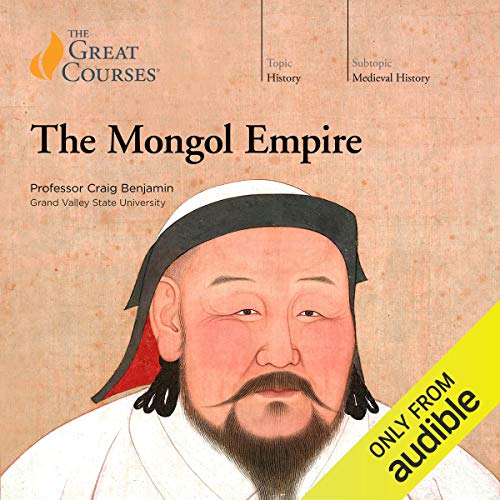Review: The Mongol Empire by Craig Benjamin, The Great Courses
August 16, 2022 • Benjamin Keninger
Who doesn't like the Mongols? Nomadic horse-archers who ruthlessly crushed all those who opposed them are generally considered pretty cool in my book. Wanting to learn more about the rise and fall of the legendary Mongol Empire, I purchased The Great Courses' audiobook The Mongol Empire and gave it a listen. Here are my thoughts:

For starters, as The Great Courses series is designed for audiobooks The Mongol Empire flows seamlessly when listening to it. There are no abrupt descriptions of images the listener can't see, for instance - a common issue I've found with history texts that have an audiobook variant. Additionally, the narrator (who is also the book's writer), Craig Benjamin, gives a pretty good vocal performance with lots of expression. He can talk a too slow sometimes but as Audible has a built-in speed modifier this isn't really much of an issue.
As for the actual content of the book, it's pretty solid. As is probably to be expected the lion's share of the first half of the text is spent covering the life of Ghengis Khan, though it also briefly recounts the history of nomadic warriors in Central & East Asia before Ghengis's time. The later sections discuss the four khanates that emerged from the Mongol's conquered territory as well as Tamerlane's short-lived Timurid Empire before closing the book with a discussion of the legacy of the Mongol Empire and its successor states. With a length of only 11 hours the book is really more of an introduction to the subject, but this does have the benefit of allowing the book to maintain a quicker pace and no get bogged down with excessive details. Needless to say however is if you are hoping for a deeper dive into the history of the Mongols you will want to look elsewhere.
My only true issue with the text is that the The Mongol Empire puts far too much emphasis on individual names and the specific historical figures to which those names belonged to. As the book covers centuries of history, this results in the listener trying to keep track of dozens of people that may or may not have played a pivotal role in the Mongol's history. While not a huge flaw by any means, it did make the events of some chapters difficult to follow.
Aside from that small (and possibly subjective) gripe, The Mongol Empire is a pretty good audiobook and well worth a listen for those wanting to get an introduction into the Mongol's history.